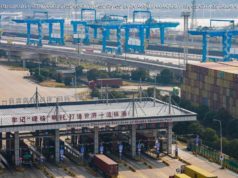By many measures, the city has done very well indeed since its return to Chinese sovereignty, yet citizens don’ t appear to have seen the benefits
Since its return to Chinese sovereignty in 1997, Hong Kong as a city is perhaps doing much better than its people. This seems to be the case if you look up the usual matrixes used to measure the social and economic success or failure of a place. Why that is so may be a more difficult question to answer.
According to the just-released world rankings of life expectancy by the Japanese Ministry of Health, Labour and Welfare, Hong Kong people have displaced the Japanese as living the longest, for the second year in a row.
This automatically means several things. Our much-maligned public health system is actually doing pretty good, at least when it comes to low infant and maternal mortality rates, and care for the elderly. It also means the city’s decades-long anti-smoking policy is working.
Some experts have argued it is not fair to compare Hong Kong with a large country such as Japan. But in terms of population size and economic development, it’s not unfair to compare the city with Cyprus, Iceland, Switzerland, Norway, Sweden and Israel, all of which are in the top 10 of the ministry’s latest rankings.
Hongkongers top life expectancy rankings worldwide for second year in a row
Meanwhile, when it comes to low crime rates, Hong Kong remains one of the safest in the world. Poverty levels are falling, though experts argue about by how much. Unemployment is low.
Our gross domestic product per capita has grown by almost 40 per cent to US$44,000-plus today from more than US$27,000 in 1997, at an average annual rate of 2.6 per cent.
That’s low by mainland standards but comparable to the growth rates of Western developed economies.
Of course, data don’ t necessarily capture quality of life and people’s expectations and life goals. Our elderly may be living longer than ever but the quality of care for many may be substandard.
We may have more university graduates than ever but the entrance salaries of many, discounted for inflation, may be little better than secondary school graduates in the 1980s. Our workers’ productivity has risen faster than their income in the past two decades. This means they have been working harder for their bosses, not for themselves.
Our problems are legion – just like in any other world city. Many of us think we live in a terrible and abnormal place, and it’s getting worse. That may be so, but it’s all relative when the glass is only half full.






